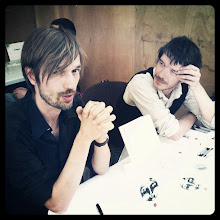When I think of my hometown, Mulhouse in Alsace, I never have nostalgia; it questions me. I was born in a question city: a small protestant town near the German border, an autonom Republic under Swiss protection during 3 centuries, that turned French in 1798 for economical reasons (high taxes after the 1789 Revolution). Mulhouse turned German (Reichsland Elsaß-Lothringen) after the 1870 war and the French decision to give Alsace-Lorraine to Germany (1871-1918). The city was French between 1918 and 1939, then German (1939-1945); then French since then.
William Wyler, nephew of Carl Laemmle, co-founder of the Universal studios, was born and raised in Mulhouse (1902-1981), when the city was German. His parents run a store that was still active in the 1950's. Wyler still had the Alsatian accent when speaking in French; he had a strong relationship with his hometown, keeping friends all his life, running his parents store from L.A. after their death. Is there a relationship between his youth in German-Mulhouse and his film career? Where can one see some of the identity / border questions he grew up in?
Ben Hur was written by Lew Wallace (1880), a general during the American Civil war. The South of the US (Judea) does not want to be swallowed by the North (the big Rome). Relating to William Wyler personal history, it becomes: the little Alsace (Judea / Ben Hur) conquerred by Germany (the big Rome / Messala). Messala tries to convert his old friend (or lover) Ben Hur to the Roman-German ideals. Ben Hur refuses assimilation, as the little Wyler's Alsace resisted the German temptation, preserving its French ideal for half a century. A Jew himself, William Wyler had at least 2 good reasons to identify with the Ben Hur story.

<< Home